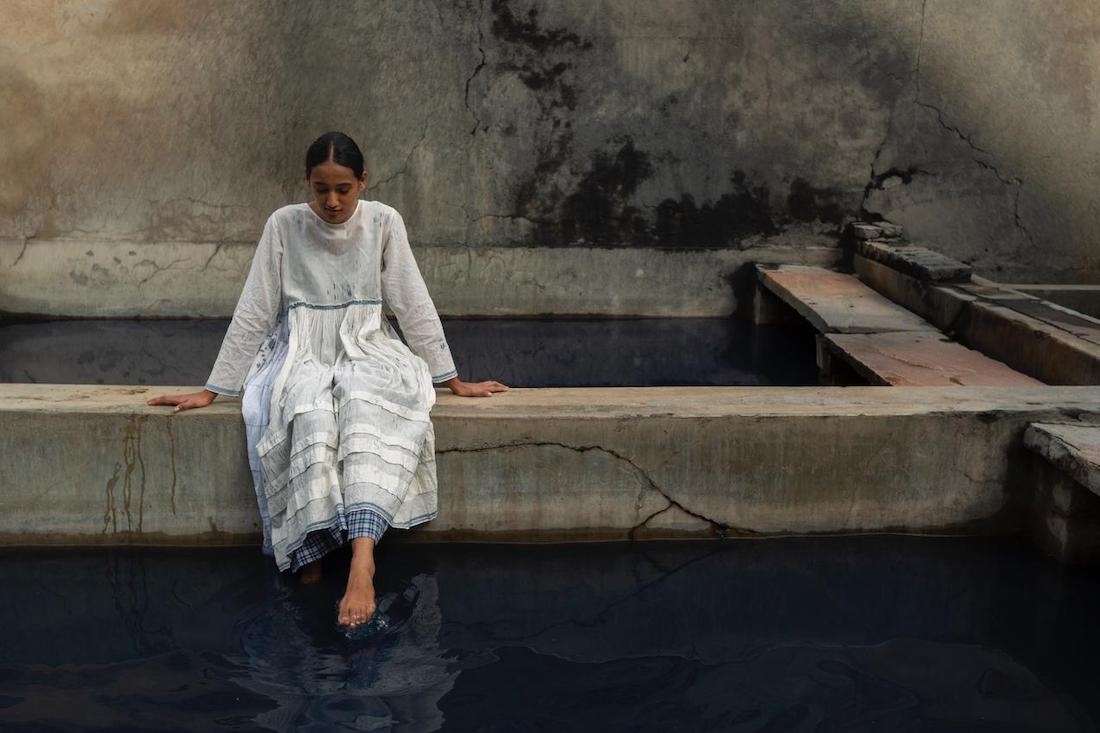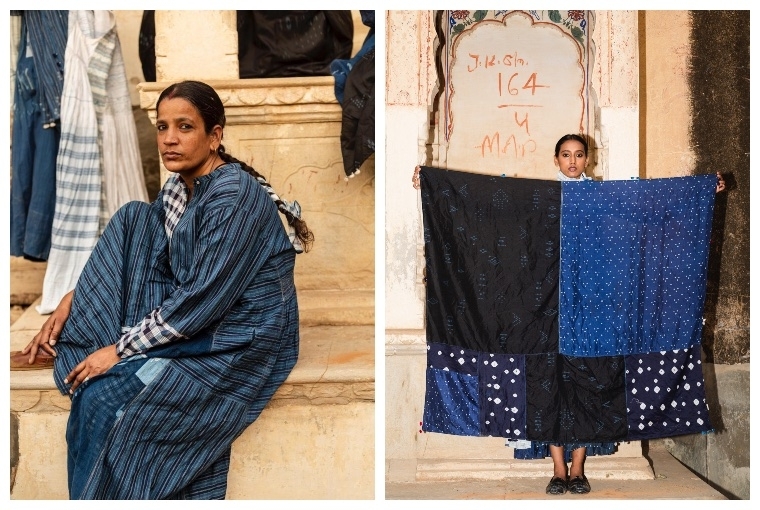

Designer Chinar Farooqui of the homegrown label Injiri, vividly recalls being intrigued by the fabrics and dupattas her mother would purchase. The designer reminisces trotting along with her mother, a textile enthusiast, as she visited many cloth centres, one of them being Akola, the hub of indigo dyeing. Chinar grew up in some of the remotest regions of Rajasthan while engaging with the local arts and crafts, and developed high regard for artisanal products early on in life. It is this childhood interaction with the crafts and unadulterated fascination with the process of producing textiles, that forms the very basis of her design philosophy today.
We’re in conversation with Chinar, as she tells us about how the label has evolved and what’s keeping her motivated to create at a time like this.
The Motivation
I am motivated by my desire to create beauty and support Indian textile crafts. I have studied fine arts and am more a visual artist than an entrepreneur. I love engaging with traditional textiles and my work allows me that space. I also believe in supporting the artisan relationships I have nurtured over the years. Both of the above keep me going and I love to work with colour, form, texture, artisans and communities.
I think I have learnt more about how to use colour, how to balance traditional and contemporary in craft vocabularies, how to waste less fabric while cutting a garment, how to approach textile design, amongst other learnings. My work has evolved and become more craft focussed over the years. I began with believing that traditional craft must be a designer’s tool to create good design, especially in a country like India, and I continue to believe the same. I am certain that working with handcrafted textiles is the future of good design practice.
The Process
My creative process is not linear or very structured. I usually start developing textiles a year earlier for the season. Each collection is usually an outcome of my experiments with textile design. I like to work with a singular colour and use it in multiple ways. I like to see how one colour behaves with another colour. I like to understand what proportions do to compositions and so on. As I use crafts, such as jamdani, which have a traditional vocabulary, I enjoy breaking up the traditional borders and deconstructing it. I play with forms and designs within the limitations of what a jamdani weaver can do, but I ensure that it carries an element of us in it.
I would love to have a more craft focussed way of creating textiles. Due to industrial production, crafts are suffering. Most traditional textiles are losing good techniques as they pay poorly. Time consuming textile techniques also have no patrons. I feel that as designers, we can engage with craftspeople and support the handmade products, so that we can safeguard traditional wisdom. Contributing in our own little ways is my aspiration.

The Fashion of Now
The word fashion is misleading for me. I have never quite understood it. But I have started using it for my work lately because I have begun to get hints of what it means now. I am not fashion shy anymore. It means different things to different people and is therefore difficult to understand. Fashion can be non-glamorous, muted and simple. Fashion of now should be quiet and calm, it does not have to demand attention. Fashion must be for a purpose other than fashion. It must be for a cause, it must be valuable to society and contribute in a meaningful way. Fashion does not have to produce large quantities, in fact it must be produced in small quantities. We can live with just a few clothes and textiles. But fashion must carry value of where it is being made and what it is supporting. Fashion, like all other arts, is a medium of expression, and I think it must carry values of our culture, nation and society.
The Pandemic and Beyond
The label has done okay through the pandemic. We have managed to continue our relationships with weavers, artisans and our buyers. People have bought smaller quantities but are happy with what they have bought and we are quite satisfied that no relationships are broken. And we have managed to keep the work alive. We are working on next year’s textile designs and are busy with the development part of our work. We have also finished building our own workshop space in Jaipur which makes us very happy.
Text Unnati Saini
Date 25-03-2021